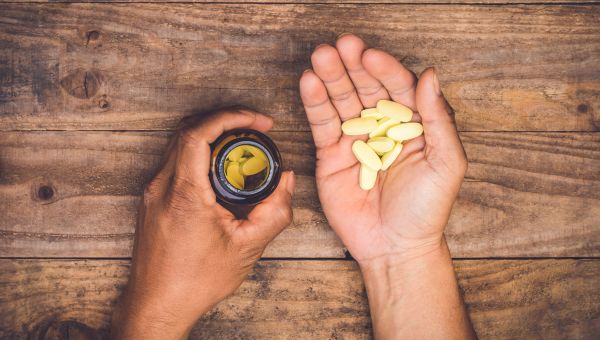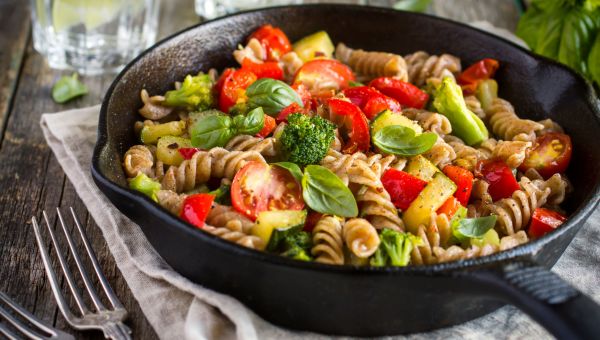The Best and Worst Foods for Hep C
Find out which foods you should (and shouldn't) eat with hepatitis C.

Your liver helps your body in a variety of ways, such as detoxifying your system and turning food into energy and nutrients. But, if you have hepatitis C, your liver may be damaged and may need some extra help doing its job.
Being mindful about what you eat is critical to having a healthy liver. A nutritious diet during hep C treatment will encourage your immune system to fight off the hepatitis virus, boost your liver function and cut your risk of cirrhosis. Some foods, however, can actually damage your liver.
Here’s what to eat—and what to avoid—for a successful hepatitis C treatment.

Avoid: Seafood
Step away from the sushi bar! Raw seafood and shellfish, such as oysters and mussels, can carry bacteria and viruses that can be life threatening for people with hep C or liver disease. Plus, oysters are high in iron, which those living with hep C should avoid; both the virus and fatty liver disease can cause excessive iron to build in the body, potentially leading to several health issues such as joint pain, hair loss and heart attack.

Enjoy: Coffee
Keep sipping on that cup of joe! Some studies have shown that coffee can slow the progression of hep C and prevent liver cancer and cirrhosis. Make sure to drink the strong stuff though—decaf coffee doesn't seem to deliver the same benefits.

Avoid: Supplements
Supplements may seem like an easy way to get all the nutrients you need, but if you're not careful, multivitamins can end up doing more harm than good. Getting too much iron or vitamin A, for example, can further damage your liver. And just because a supplement is labeled "all natural" or "herbal" doesn't mean it is automatically safe to take.
You should try to get all the vitamins and nutrients your body needs through the foods you eat. If you're worried that your diet is lacking, talk to your healthcare provider to see if there's a vitamin that will work with your treatment.

Enjoy: Whole Grains
Whole grains are a healthy source of fiber for everyone, but they're particularly beneficial to people with hep C. Adding more whole grains to your diet can help reduce your risk for diabetes, which people with hep C are more likely to develop.
Whole grains, like brown rice, oats, quinoa and barley, have double the amount of certain nutrients as refined grains. Always check ingredients for whole grains and don't be fooled by misleading labels such as "multigrain" or "100% wheat."

Avoid: Salt
One of the symptoms of advanced hep C is fluid retention and swelling. Avoid a swollen belly or legs by eating a low sodium diet. Sodium can hide in many processed foods and fast foods, so it’s important to talk to your healthcare provider about how much sodium you should have in your diet and how you can limit added salt.

Enjoy: Water
Being properly hydrated is always a smart choice when it comes to your health. Drinking lots of fluids can help curb hep C symptoms such as nausea and fatigue. Most adults should aim for nine to 13 cups of water each day, but you can eat your way to hydration, too.

Avoid: Sugar
Have a sweet tooth? Opt for fruit rather than treats with added sugars. Too much added sugar may cause fatty liver disease, weight gain and insulin resistance. Even seemingly "healthy" forms of sugar such as honey, agave, maple syrup, molasses and corn syrup should be avoided.

Enjoy: Fruits and Veggies
We all know it’s important to eat lots of fruits and veggies, but it's especially vital for people with hep C. Brightly colored produce, such as watermelon, sweet potatoes and berries, can help boost your energy levels and fight fatigue, a common symptom of hep C and treatment. Plus, these goodies can help you lose weight, contribute key nutrients to your diet and make your diet healthier overall.

Avoid: Alcohol
Just one glass of wine is harmless, right? Not for people with hep C. Even a small amount of alcohol can speed up liver damage, leading to cirrhosis, cancer and liver disease. It can also make hepatitis C treatment less effective. There’s no safe amount of alcohol those with hep C can drink, so it's best to avoid it all together.
More On


video


video


video


video
